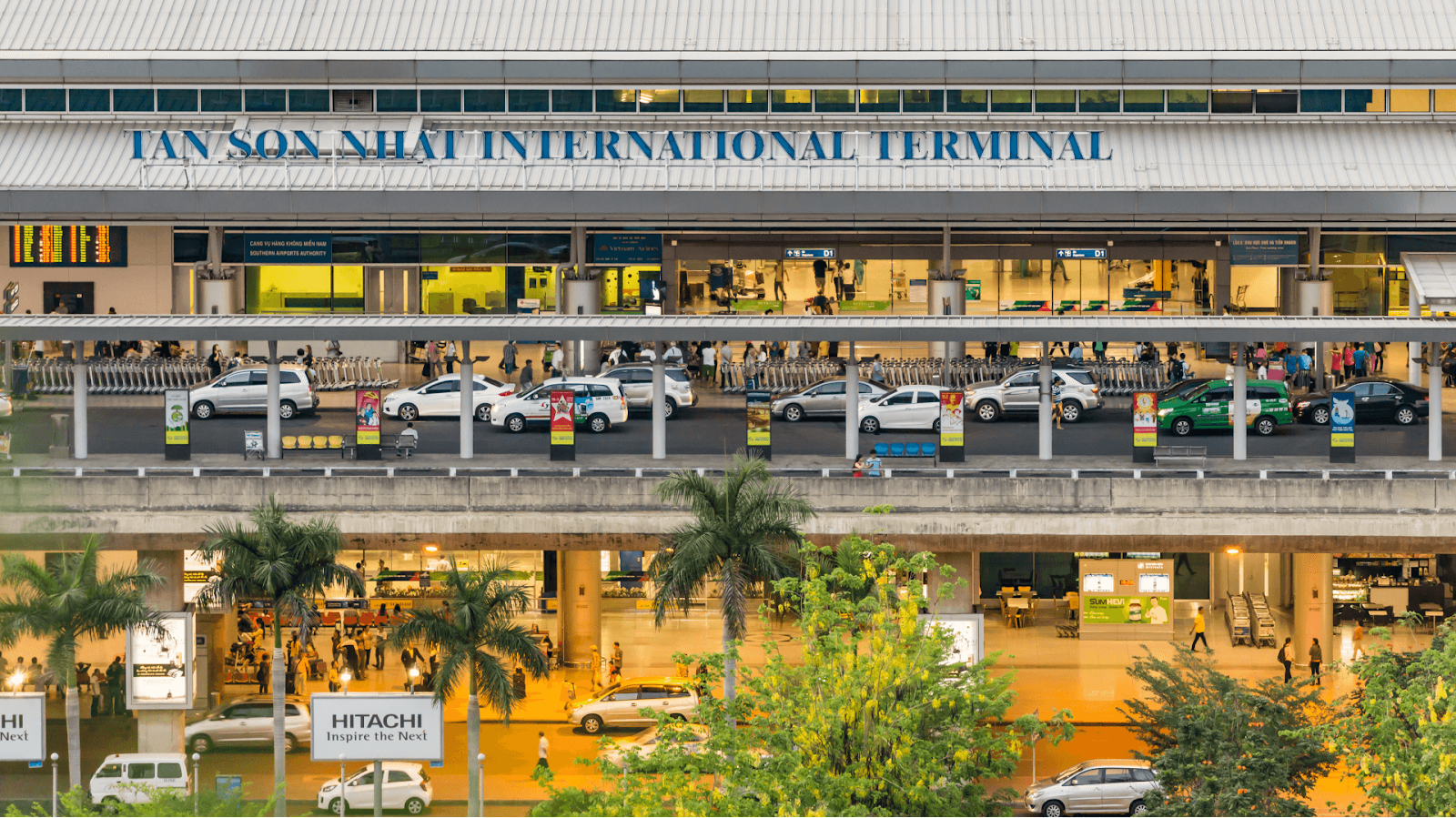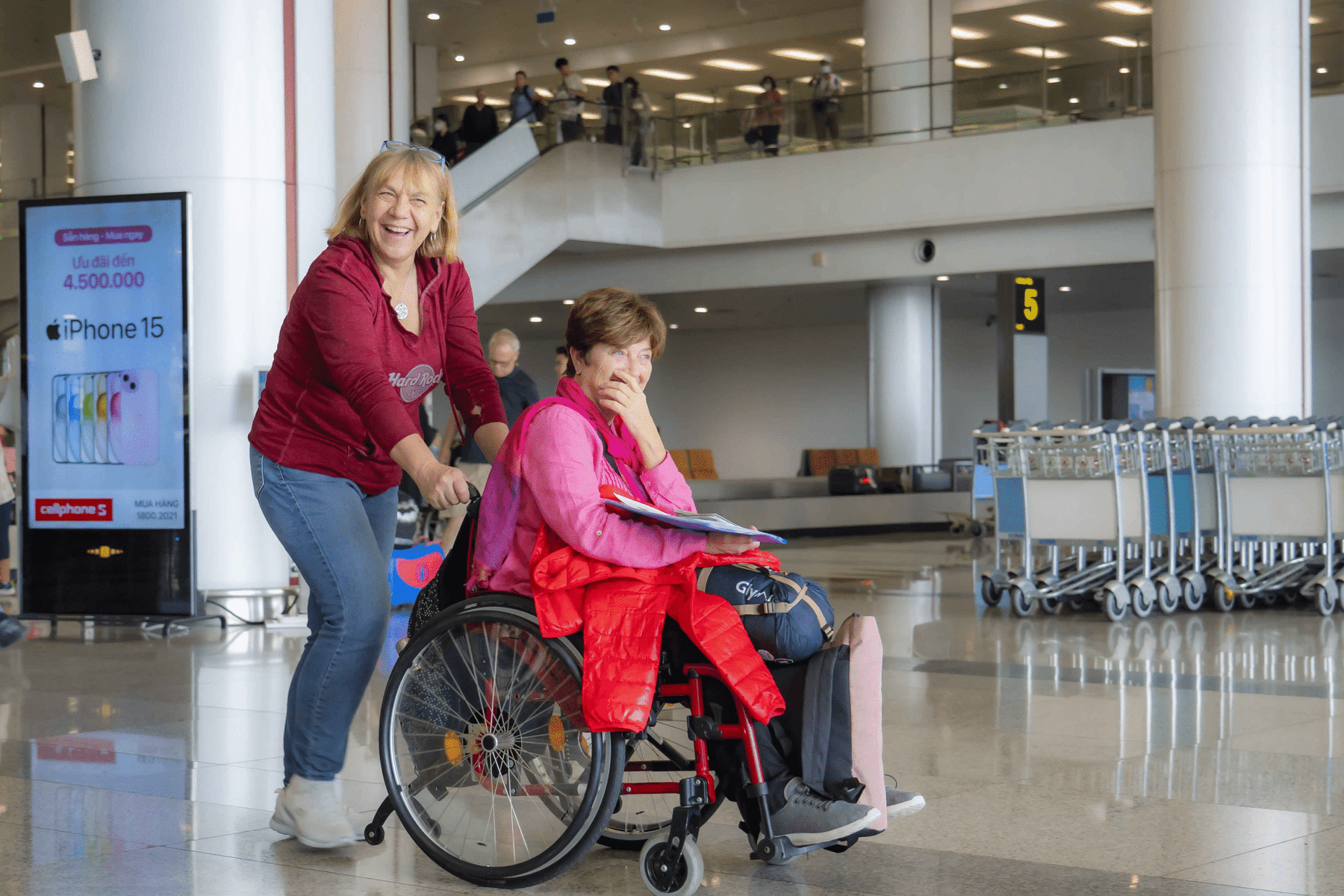Currency Exchange In Ho Chi Minh City: Rates, Tips, and Best Places
Traveling to Vietnam? One of the first things you’ll need to understand is how to manage your money—and specifically, where and how to exchange currency. Ho Chi Minh City (formerly Saigon) is a bustling economic hub, and exchanging money here can be straightforward if you know where to go and what to watch out for. In this guide, we’ll cover everything from understanding the Vietnamese Dong to finding the best exchange rates and avoiding scams.

Table of contents:
- 1. Understanding Vietnam’s Currency
- 1.1. What is the Vietnamese Dong (VND)?
- 1.2. Common Banknote Denominations
- 1.3. Currency Symbols and Abbreviations to Know 2. Where to Exchange Money in Ho Chi Minh City
- 2.1. Banks
- 2.2. Gold and Jewelry Shops
- 2.3. Currency Exchange Counters at Airports
- 2.4. Hotels and Tourist Areas
- 2.5. ATMs and Card Withdrawals 3. Current Exchange Rates and How to Check Them
- 3.1. Best Apps and Websites for Real-Time Rates
- 3.2. How to Avoid Poor Exchange Rates 3. Essential Tips for Exchanging Money Safely
- 3.1. How to Spot Counterfeit Bills
- 3.2. Best Practices to Avoid Scams
- 3.3. Cash vs Card: What’s Better in Vietnam? 4. Final Thoughts: Making the Most of Your Money in Ho Chi Minh City
1. Understanding Vietnam’s Currency
1.1. What is the Vietnamese Dong (VND)?
The official currency of Vietnam is the Vietnamese Dong, abbreviated as VND and symbolized as ₫. It’s a non-convertible currency, which means it can’t be traded outside the country. The Dong comes in large denominations, with notes ranging from 1,000 to 500,000 VND. Despite the high numbers, the value is relatively low—for example, 1 USD is roughly equivalent to 25,000 VND (as of the latest average).


1.2. Common Banknote Denominations
Vietnamese banknotes come in two types: polymer and paper. The most commonly used polymer banknotes include 10,000 VND, 20,000 VND, 50,000 VND, 100,000 VND, 200,000 VND, and 500,000 VND. Smaller paper notes, such as 1,000 VND, 2,000 VND, and 5,000 VND, are rarely used but still in circulation. Always check the colors and zeros carefully, as some bills look very similar.
1.3. Currency Symbols and Abbreviations to Know
You’ll often see VND written as “₫,” “VND,” or just as numbers without decimals (e.g., 100000 for 100,000 VND). Be cautious when comparing prices, especially if you’re dealing in multiple currencies during your travels.
2. Where to Exchange Money in Ho Chi Minh City
2.1. Banks
Major Vietnamese banks like Vietcombank, BIDV, and ACB offer currency exchange services at official rates. Banks are a safe and trustworthy option, though they may charge small fees or require some paperwork. Business hours typically run from 8 AM to 4 PM, Monday to Friday.
2.2. Gold and Jewelry Shops
Licensed gold and jewelry shops in areas like District 1 often offer competitive exchange rates and faster service compared to banks. Popular shops include those on Hai Ba Trung Street or in Ben Thanh Market area. Ensure the shop is licensed to avoid scams or counterfeit bills.


2.3. Currency Exchange Counters at Airports
Tan Son Nhat International Airport has several exchange counters, but the rates are usually less favorable. It’s convenient for small amounts on arrival but not ideal for larger exchanges.

2.4. Hotels and Tourist Areas
Many hotels and travel agencies offer currency exchange services, especially in tourist-heavy districts. While convenient, these rates are often less competitive. It’s best to use these services for small, emergency exchanges.
2.5. ATMs and Card Withdrawals
ATMs are widespread in Ho Chi Minh City and allow foreign cards to withdraw VND. Be aware of foreign transaction fees and local ATM limits. Some banks like Citibank and HSBC may offer better withdrawal terms for travelers.
3. Current Exchange Rates and How to Check Them
3.1. Best Apps and Websites for Real-Time Rates
Reliable platforms like XE.com, OANDA, and Google provide up-to-date exchange rates. Mobile apps such as Wise, Revolut, or Currency Converter Plus are also handy when checking live rates or comparing multiple currencies.
3.2. How to Avoid Poor Exchange Rates
Avoid exchanging money at hotels, airports, or unlicensed vendors when possible. Compare rates at several locations before making a large exchange. Always calculate the effective rate, including any fees or commissions.
4. Essential Tips for Exchanging Money Safely
4.1. How to Spot Counterfeit Bills
Counterfeit currency exists, so it’s important to know what real VND looks like. Feel for the plastic texture of polymer notes, check for transparent windows, and hold bills up to the light to see embedded security threads. Avoid exchanging money with street vendors or unauthorized individuals.
4.2. Best Practices to Avoid Scams
Always count your money before and after any exchange. Ask for a receipt and double-check the exchange rate on the sign or digital display. Be cautious in crowded areas where quick-change scams can occur.
4.3. Cash vs Card: What’s Better in Vietnam?
Cash is king in Vietnam, especially for local markets, taxis, and small restaurants. However, credit and debit cards are accepted in most hotels, malls, and high-end establishments. Always carry some cash in small denominations for everyday transactions.
5. Final Thoughts: Making the Most of Your Money in Ho Chi Minh City
Exchanging currency in Ho Chi Minh City is generally safe and easy if you follow the right steps. Understand the local currency, compare exchange rates, and choose trustworthy locations. With a bit of preparation, you can get the best value and avoid common tourist pitfalls.
Whether you’re exploring street food in District 4 or shopping in Saigon Centre, having the right currency and knowing how to use it smartly will enhance your travel experience in this dynamic city.
Currency Exchange in Ho Chi Minh City – FAQ
1. What is the official currency in Vietnam?
The official currency is the Vietnamese Dong (VND). You’ll often see it written as “₫” or “đ”.
2. Can I use US dollars or other foreign currencies in Vietnam?
US dollars are accepted at some hotels and agencies, but Vietnamese Dong is preferred for most purchases.
3. Where can I exchange money in Ho Chi Minh City?
You can exchange at:
– Banks (safe and regulated)
– Gold shops (better rates, common around Ben Thanh Market)
– Exchange counters at airports and malls
– ATMs (dispense VND, may include fees)
4. Are gold shops legal for exchanging money?
Only licensed banks are official, but many locals and tourists still use gold shops for better rates. Choose reputable ones.
5. What currency is best to bring for exchange?
USD, EUR, and AUD are the most commonly accepted. Make sure bills are clean and undamaged.
6. Is it better to exchange money in Vietnam or in my home country?
Vietnam usually offers better rates, especially at local banks and gold shops. Avoid airport rates if possible.
7. What are the typical exchange rates?
Rates change daily. You can expect around 1 USD = 24,000 – 25,000 VND. Check online or with banks for current rates.
8. Are there any limits on how much I can exchange or carry?
You must declare if carrying over $5,000 USD or equivalent. No limit for small exchanges.
9. Do I need my passport to exchange money?
Yes, banks require a passport. Gold shops usually do not.
10. Can I exchange leftover Dong back to my currency?
Yes, but it’s easier at major banks or the airport. Keep your exchange receipts if possible.
✨If you don’t receive a response, please contact me directly via my WhatsApp number or send me an Email📱 WhatsApp: +84 383 624 632 📧 Email: info@saigontastetours.com 🌐 Website: www.saigontastetours.com🎟️ Explore Our Tours with Saigon Taste Tours
Looking for things to do in saigon April 2025 authentic, local-led experiences in Saigon? Let us be your local friends and guides! Check out our most popular tours below:
🍜 Saigon Street Food Night Tour by Motorbike
Zip through the streets on a motorbike and taste the best of Saigon’s hidden street food scene. From Vietnamese pizza to seafood alleys — this is our most loved tour!
👉 Book Now
🛵 Saigon History, Hidden Gems: Scooter Sightseeing Tour
Discover secret alleys, French colonial architecture, and stories that don’t appear in guidebooks. Perfect for first-time visitors who want more than just the tourist spots
🛵 Saigon Culture, Hidden Gems & Local Life: Scooter Sightseeing Tour
Experience real Saigon beyond District 1 — visit markets, pagodas, neighborhoods, and unique coffee spots with our friendly local drivers.
🚤 Private Mekong Delta Day Tour
Escape the city and explore quiet canals, local workshops, and lush countryside — away from big bus crowds.
💣 Cu Chi Tunnels Half-Day Tour (Local Insight Version)
Visit this historic site with context, stories, and a perspective you won’t find on mass tours.
✨ Want a custom experience? Contact us directly and we’ll create something just for you!
📧 Email: info@saigontastetours.com
📱 WhatsApp: +84 383 624 632
🌐 Website: www.saigontastetours.com
Book a Once-in-a-Lifetime Experience with us
OUR EXPERIENCES
Cu Chi Tunnels Excursions Ho Chi Minh Day Trips, and Combos Mekong Delta Adventures Phu My Port Shore Excursions Saigon: Culture, and History Saigon Highlights, and Street Food Jeep Tour Saigon Luxury Speedboat River Tours Saigon Street Food Southern Vietnam Coastal Adventures Taste of Ha Noi Tours Taste of Hoi An Tours
Don’t leave just yet—stay with us a bit more!



Leave a Reply